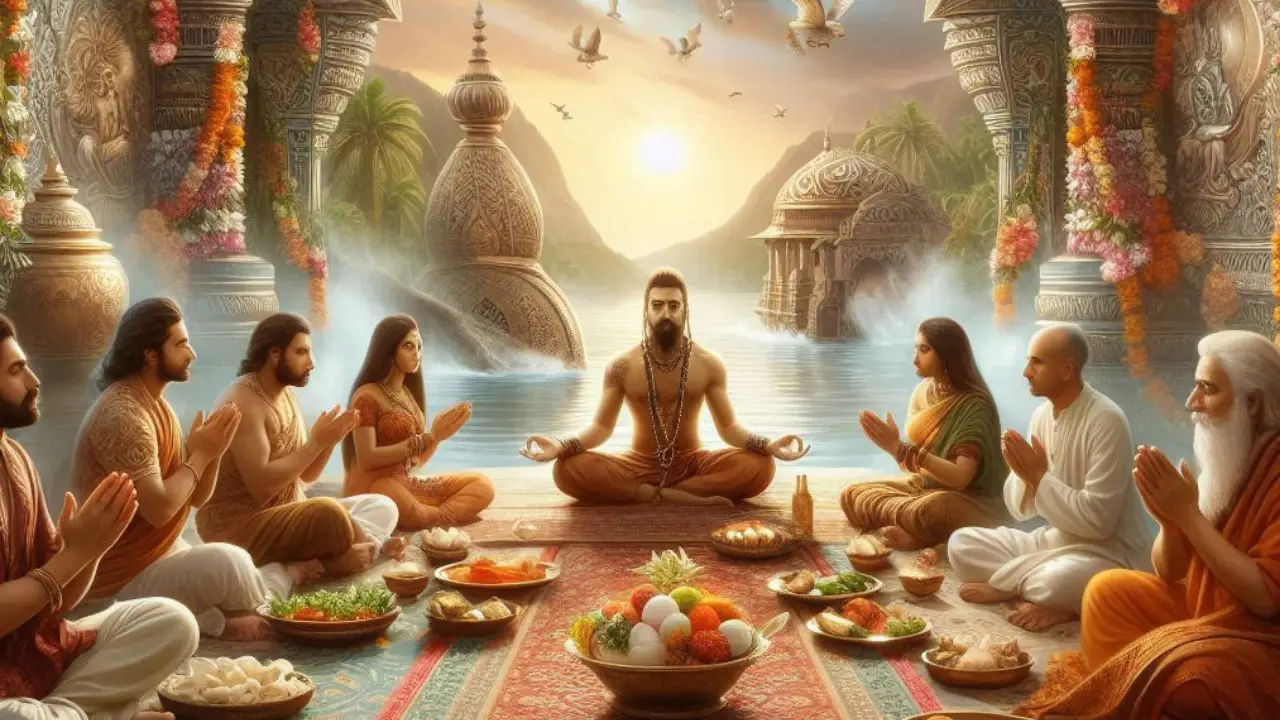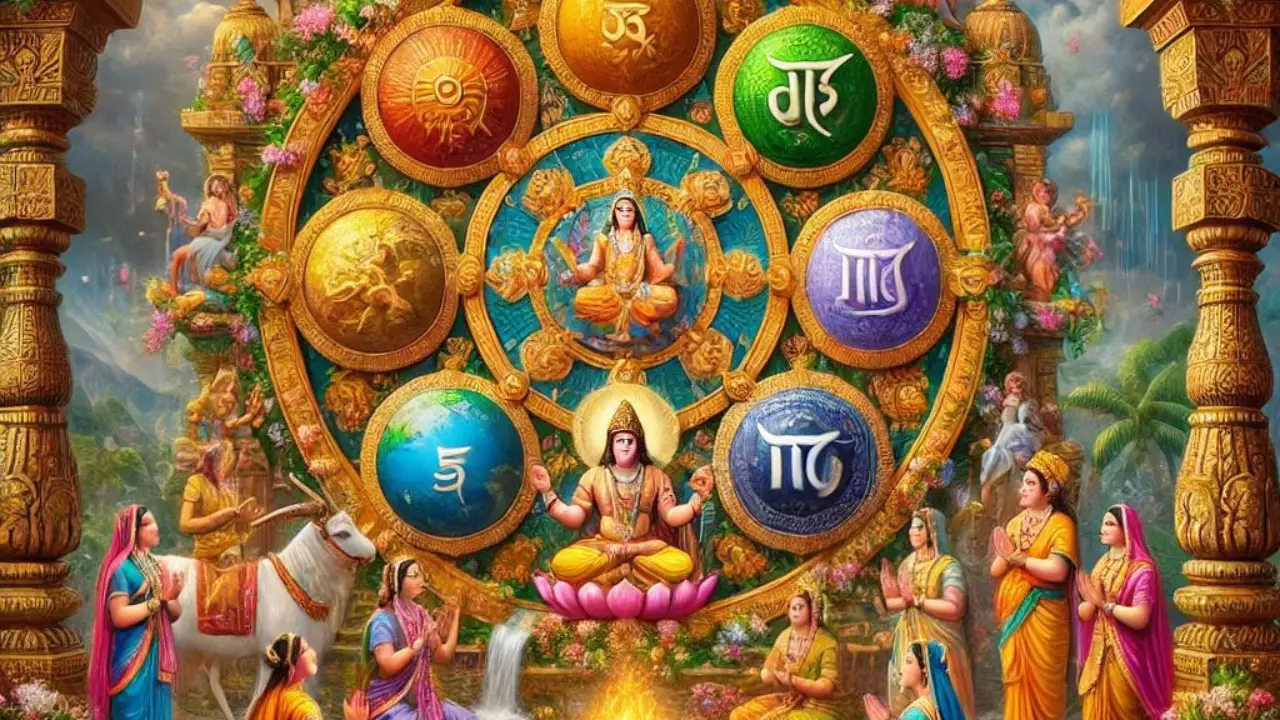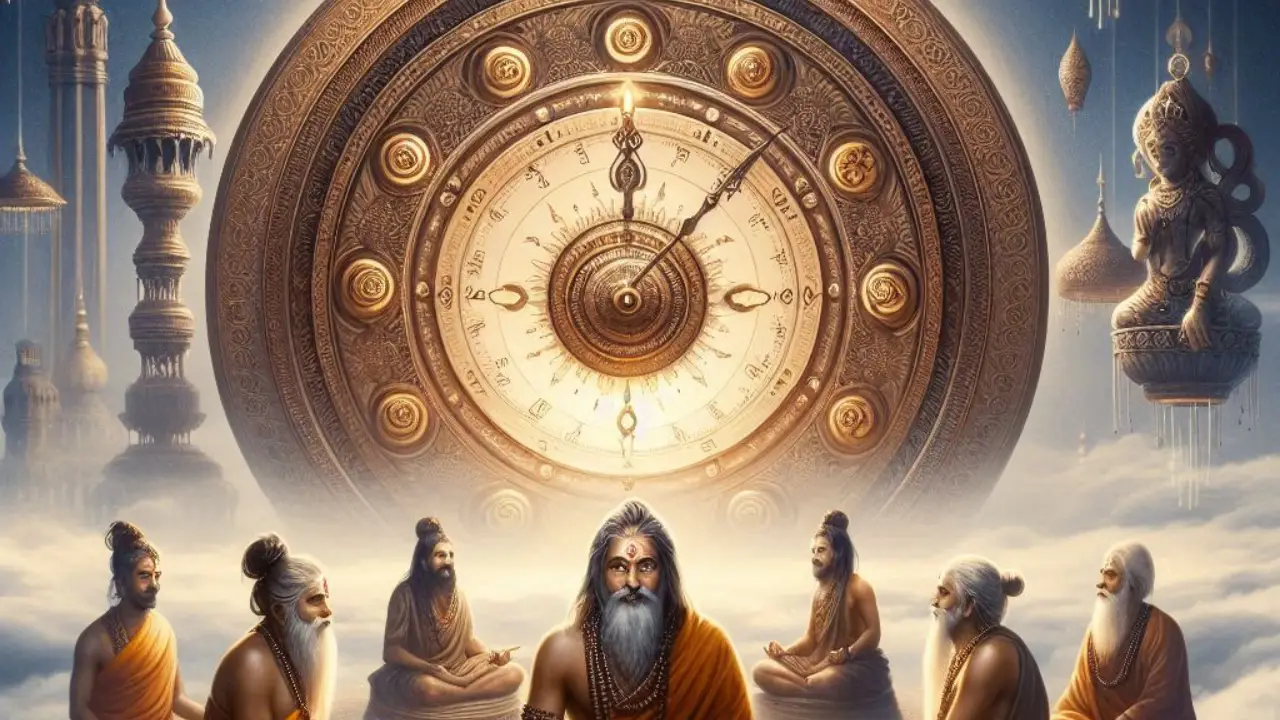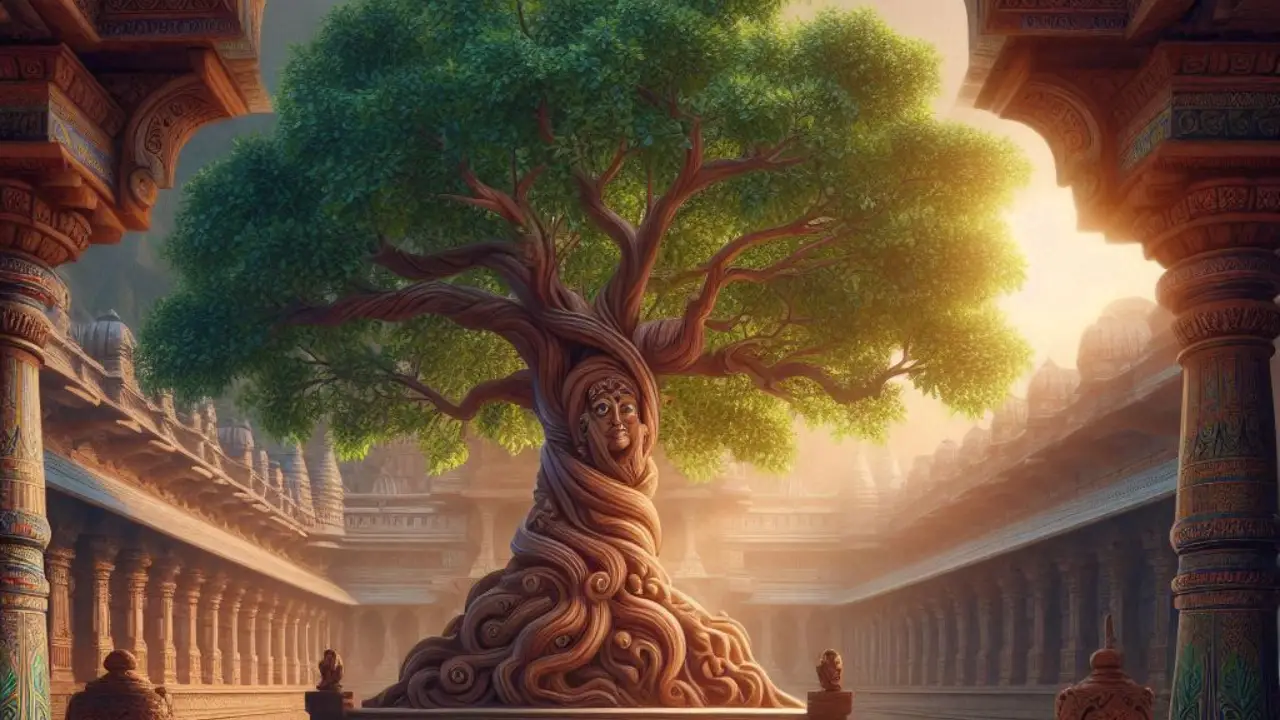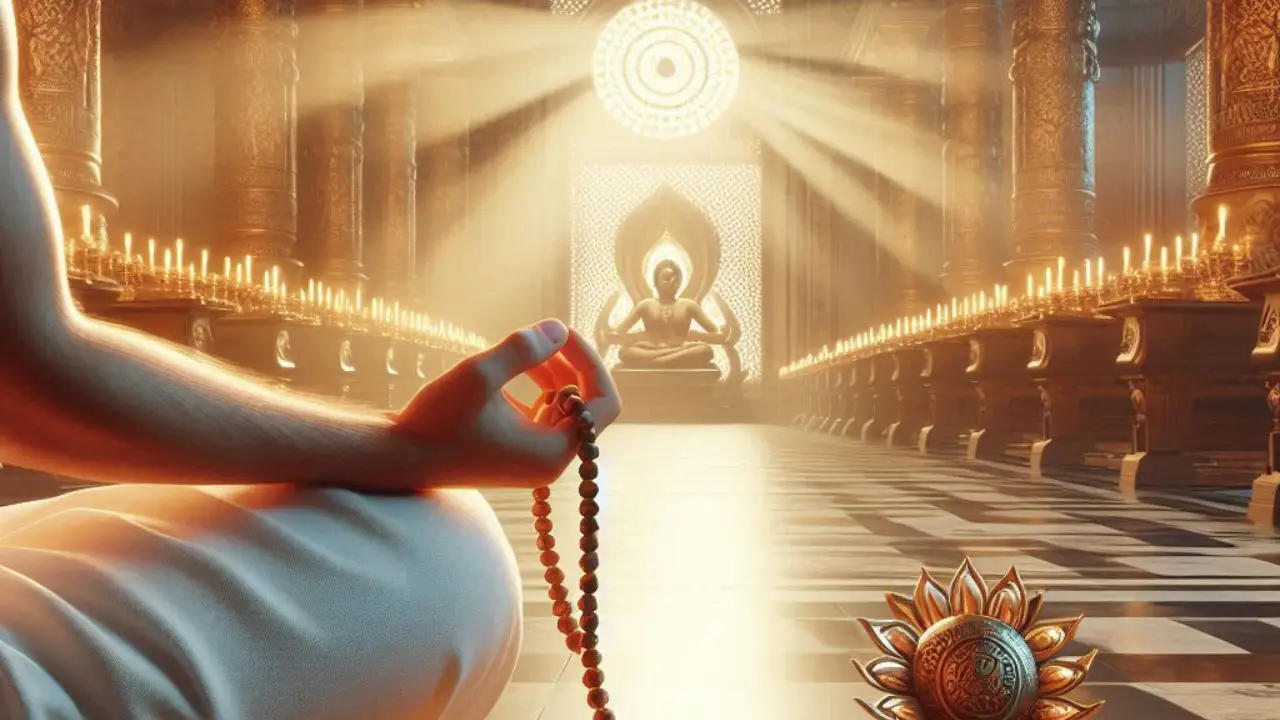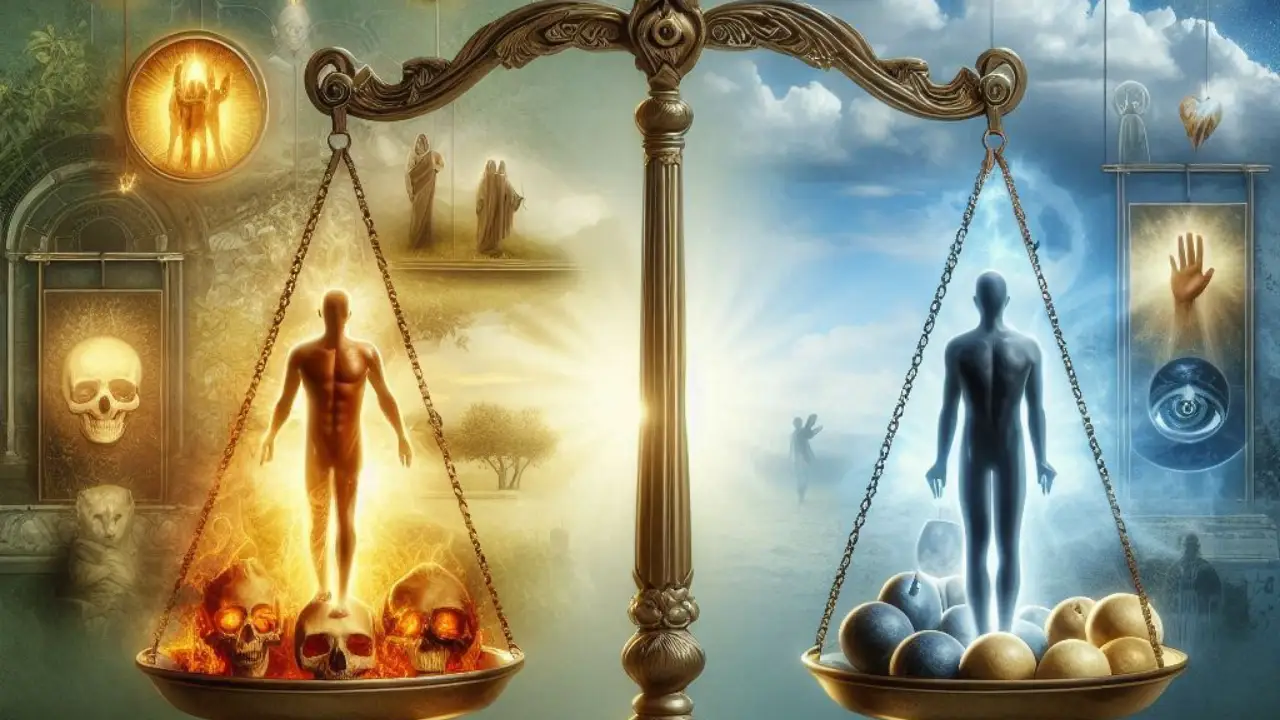Fasting holds deep significance in Hinduism. Beyond its physical benefits, it nurtures mental clarity and strengthens spiritual discipline. For centuries, devotees have been guided by fasting in Hinduism toward self-control, inner peace, and stronger faith. The Deeper Meaning of Fasting in Hinduism Fasting isn’t just about skipping meals. It’s a conscious practice that aligns the…
Category: Hinduism
Hinduism is diverse, old, and complex, with spiritual, cultural, and philosophical elements. It originated in the Indian subcontinent. It lacks a single founder or centralized authority, making it diverse and decentralized.
Hinduism advocates virtuous and ethical living in harmony with duty, guided by dharma. The moral code stresses interconnectedness and fulfilling obligations to family, society, and cosmos.
Hinduism’s pantheon includes Brahma, Vishnu, and Shiva, representing various aspects of the divine. Deities are revered in different forms, and individuals may choose a personal connection.
Karma plays a central role, determining future existence through samsara’s cycle. Accumulating good karma leads to a better future or liberation from reincarnation (moksha).
Integral practices like yoga and meditation aim for self-realization and unity with the divine. Hindu rituals and festivals express devotion, celebrating nature, epics, and good triumphing over evil.
With over a billion adherents, Hinduism evolves while preserving core principles. Its inclusivity allows harmonious coexistence with other religions, shaping India’s cultural landscape and influencing the world.
Sacred Rivers in Hinduism: More Than Just Water
Rivers in Hindu mythology hold a significance far beyond their physical presence. These sacred rivers are seen as divine, embodying gods and goddesses, and offering a sacred space for purification, meditation, and spiritual connection. From the mighty Ganges to the sacred Yamuna, rivers in Hindu culture represent more than just streams of water; they are…
Navagrahas in Hindu Temple Worship: Explore the Power
Hindu temple worship is a deeply spiritual experience, connecting devotees to cosmic energies and divine blessings. Among the many facets of this tradition, the Navagrahas (nine planetary deities) hold a unique and vital place. These celestial bodies are not just astronomical entities; they embody powerful forces influencing human lives. Understanding the role of Navagrahas in…
Kumbh Mela: Faith and Unity on a Global Scale
The Kumbh Mela stands as a profound symbol of spiritual devotion and unity. Drawing millions from across the globe, it’s a testament to the enduring power of faith and tradition. This sacred Hindu gathering has become a source of inspiration for pilgrims and spectators alike, blending ancient rituals with timeless lessons of spirituality. A Historical…
Yugas and Kala: Hinduism and the Concept of Time
The concept of time in Hinduism presents a profoundly unique perspective that reflects the deep-rooted philosophy of cycles, rebirth, and cosmic order. Unlike linear timelines in Western thought, Hinduism perceives time as circular, cyclical, and ever-renewing—a divine rhythm known as Kala. This understanding of time intertwines with the concept of Yugas, or ages, where each…
Peepal Tree: The Symbolism in Hindu Temple Traditions
Ancient trees have always held spiritual importance, but few are as revered in Hindu culture as the Peepal tree. Known scientifically as Ficus religiosa, the Peepal tree finds mention in ancient scriptures, legends, and temple rituals across India. This sacred tree, often seen outside temples, is steeped in profound symbolism that spans life, wisdom, and…
Pooja Flowers: Divine Significance in Hindu Rituals
Flowers play a unique role in Hindu rituals, where each bloom holds sacred symbolism and spiritual significance. Offering flowers to deities goes beyond beauty—it’s about devotion, intention, and reverence. From the fragrant jasmine to the vibrant marigold, each flower embodies qualities that enhance worship, making it a vital part of any pooja (ritual worship). Let’s…
Japa: Unlocking Spiritual Energy Through Repetition
Japa, the repetitive chanting of mantras, plays a vital role in Hindu spiritual practices. It is a time-honored tradition that holds a deep connection to the concept of meditation and mindfulness. In Hinduism, Japa is not just a ritual; it’s a powerful tool for inner transformation and divine connection. What is Japa? At its core,…
Karma in Hinduism: The Law of Cause and Effect
Karma plays a central role in Hindu philosophy, shaping the way followers understand their actions and their consequences. The concept of karma transcends just moral judgment; it reflects a deep connection between the individual’s actions and their life experiences, both in this world and in future lifetimes. In Hinduism, it isn’t merely a mystical belief—it…
Seva: Transforming Lives Through Selfless Service
Imagine a world where every individual contributes selflessly to the welfare of others. This vision is deeply ingrained in Hindu philosophy through the practice of Seva, or selfless service. Seva is not just an act of charity but a way of life that emphasizes compassion, humility, and interconnectedness. By engaging in Seva, individuals can experience…

